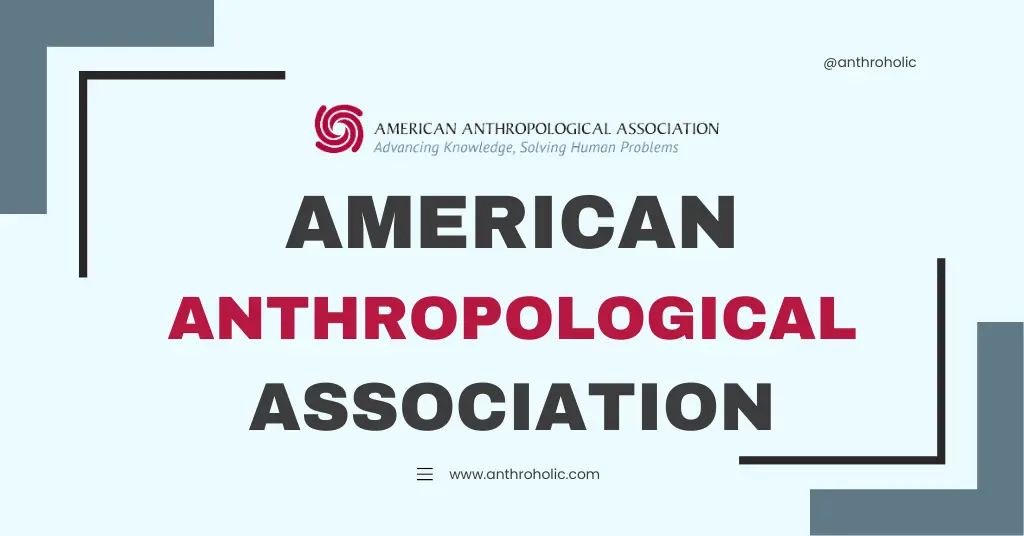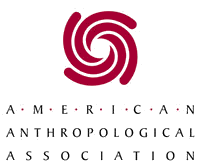AI Answer Evaluation Platform Live Now. Try Free Answer Evaluation Now
American Anthropological Association (AAA)
The American Anthropological Association (AAA) is the biggest group in the world devoted to developing anthropology. With its rich history, vision, and development, the American Anthropologcial Association has played a vital role in shaping the discipline over time. This article offers a concise overview of the history, vision, and development of the AAA.

History of the American Anthropological Association
| Established | 1902 |
| Abbreviation | AAA |
| Founders | Franz Boas, W.J. McGee and Others [1] |
| Initial Membership | 175 Members |
| Current Membership | Over 10,000 Members [2] |
| Headquarters | Arlington, Virginia |
| President | Alex Barker |
| Executive Director | Ed Liebow |
| Website | www.americananthro.org |

The American Anthropological Association (AAA) was founded in 1902 with the goal of promoting the study of anthropology and facilitating communication among anthropologists. It emerged from a meeting of scholars at the University of Pennsylvania, who desired to unite professionals and foster collaboration across the discipline’s various subfields. The AAA now stands as the world’s largest professional organization for anthropologists, with over 10,000 members.
Throughout its history, the AAA has played a critical role in shaping anthropological thought and practice. It has consistently encouraged the development of new theories and methodologies, while engaging with contemporary issues. The association has also been active in advocating for anthropologists’ rights, ethical standards, and professional development.
The AAA is responsible for publishing several important academic journals, such as American Anthropologist and Cultural Anthropology, which serve as platforms for sharing research and fostering scholarly discourse. The association also hosts an annual conference that brings together anthropologists from around the world to share their work and engage in collaborative discussions.
AAA Vision and Goals
AAA’s Article of Incorporation
To promote the science of anthropology, to stimulate and coordinate the efforts of American anthropologists, to foster local and other societies devoted to anthropology, to serve as a bond among American anthropologists and anthropologic[al] organizations present and prospective, and to publish and encourage the publication of matter pertaining to anthropology
- Promote the understanding of humankind in all its diversity
- Foster anthropological research and education
- Encourage collaboration and dialogue among anthropologists
- Address pressing social issues and contribute to public policy [3]
Development of the American Anthropological Association
Over the years, the AAA has played a crucial role in the development of anthropology as a discipline. Key milestones include:
- 1919: Publication of the first issue of the American Anthropologist, the flagship journal of the AAA [4]
- 1961: The adoption of a Code of Ethics to guide anthropological research and practice [5]
- 2004: Establishment of the AAA’s Public Education Initiative to promote anthropological understanding among the general public [6]
- 2010: Launch of the “Race: Are We So Different?” project to address race and racism in the United States [7]
Publications
The American Anthropological Association (AAA) is responsible for publishing a wide range of materials that contribute to the development and dissemination of anthropological knowledge. The AAA’s publications encompass various formats, including peer-reviewed journals, books, bulletins, newsletters, and conference proceedings. These publications cover diverse topics within the four major subfields of anthropology: cultural anthropology, linguistic anthropology, archaeology, and biological anthropology, as well as interdisciplinary and specialized subjects.
AAA Peer-Reviewed Journals
The AAA currently publishes 32 peer-reviewed journals, which are considered some of the most reputable and influential publications in the field of anthropology. Among the notable journals are:
- American Anthropologist: Founded in 1888, this is the flagship journal of the AAA, featuring articles, essays, and reviews that span the discipline’s subfields.
- Cultural Anthropology: This journal focuses on contemporary theoretical debates and innovative ethnographies, covering a wide range of topics related to human culture and society.
- American Ethnologist: This journal publishes high-quality ethnographic research and theoretical discussions on sociocultural processes.
AAA Books and Monographs
The AAA also publishes books and monographs that contribute to the development of anthropological theory and knowledge. These publications often result from collaborative projects, conferences, or research initiatives.
Bulletins and Newsletters
In addition to peer-reviewed journals and books, the AAA publishes bulletins and newsletters that keep members and the anthropological community informed about the latest news, events, and opportunities within the discipline.
Conference Proceedings
The AAA holds an annual meeting, during which researchers, scholars, and practitioners present their work. The proceedings from these meetings are published, allowing the broader community to access and engage with the presented research.
All AAA publications are accessible through AnthroSource, the AAA’s digital platform for anthropological knowledge.
AnthroSource
AnthroSource is a premier digital platform and resource center designed to serve the research, teaching, and professional needs of anthropologists and those interested in anthropology. Launched in 2004 by the American Anthropological Association (AAA), AnthroSource provides online access to a vast collection of anthropological knowledge, including peer-reviewed journals, books, bulletins, newsletters, and conference proceedings.
AnthroSource offers a comprehensive range of AAA publications, featuring over 100 years of anthropological research and scholarship. The platform currently hosts 32 AAA peer-reviewed journals and more than 250,000 articles, making it an invaluable resource for researchers, students, and educators. The content on AnthroSource covers all four major subfields of anthropology: cultural anthropology, linguistic anthropology, archaeology, and biological anthropology, as well as various interdisciplinary and specialized subjects.
The primary objective of AnthroSource is to facilitate the dissemination of anthropological knowledge by making it easily accessible to a global audience. The platform offers advanced search capabilities and customizable features, enabling users to locate specific articles or topics efficiently. Additionally, AnthroSource provides digital tools that support citation management, sharing, and collaboration, enhancing the overall research experience.
As an initiative of the AAA, AnthroSource is committed to promoting the understanding of human diversity and addressing pressing social issues. The platform continually evolves to incorporate new publications, multimedia content, and interactive features that foster engagement and dialogue within the anthropological community and beyond.
Conclusion
The American Anthropological Association has been instrumental in shaping the discipline of anthropology since its inception in 1902. With a strong commitment to research, education, and public policy, the AAA has continually evolved to address contemporary challenges and promote the understanding of human diversity.
References
[1] American Anthropological Association. (n.d.). About AAA: History. Retrieved from https://www.americananthro.org/AboutAAA
[2] American Anthropological Association. (n.d.). Join AAA: Membership. Retrieved from https://www.americananthro.org/JoinAAA
[3] American Anthropological Association. (n.d.). About AAA: Vision and Goals. Retrieved from https://www.americananthro.org/AboutAAA
[4] American Anthropologist. (n.d.). About the Journal. Retrieved from https://anthrosource.onlinelibrary.wiley.com/journal/15481433
[5] American Anthropological Association. (n.d.). Ethics. Retrieved from https://www.americananthro.org/LearnAndTeach
[6] American Anthropological Association. (n.d.). Public Education Initiatives. Retrieved from https://www.americananthro.org/AdvanceYourCareer
[7] American Anthropological Association. (n.d.). Race: Are We So Different? Retrieved from http://www.understandingrace.org



